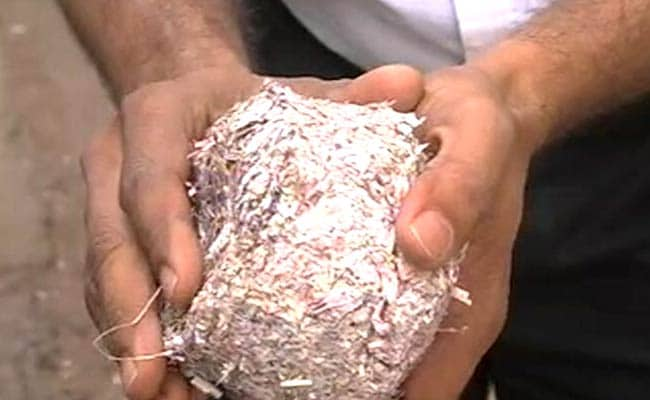The factory received tonnes of shredded demonetised notes in last three weeks.
Thiruvananthapuram:
In the three weeks since old 500 and 1,000-rupee notes have been banned by the government, over 8 trillion rupees worth demonetised currency has been deposited in banks.
With so much old currency accumulated, at least the Reserve Bank of India or RBI's state branch in Kerala's Thiruvananthapuram has found an alternative to recycle them rather than just burning them. They have been selling it to India's only hardboard making factory - The Western India Plywoods Limited - for recycling in northern Kerala's Kannur district, around 466 km away from the capital.
The factory, which was established in 1962, gets the old currencies in shredded form and converts into pulp and uses a combination of around 5 per cent of the paper pulp created from these notes with 95 per cent of wood pulp to make hardboards.
 "It was not easy for us in the beginning. Currency paper is very strong pulp and not easily recyclable. But our engineers researched and innovated and we finally succeeded. We've been able to cut costs as well as be eco-friendly. So, I am happy with the decision," said PK Mayan Mohamed, the Managing Director of the Western India Plywoods Limited.
"It was not easy for us in the beginning. Currency paper is very strong pulp and not easily recyclable. But our engineers researched and innovated and we finally succeeded. We've been able to cut costs as well as be eco-friendly. So, I am happy with the decision," said PK Mayan Mohamed, the Managing Director of the Western India Plywoods Limited.
The factory has received around 80 metric tonnes of shredded demonetised notes in last three weeks.
"Previously RBI was just burning it and now we are able to use. We have to be careful about the percentage of the pulp from old currencies we use. If we get that wrong, the end - product will be a waste", PM Sudhakaran Nair, the General Manager for The Western India Plywoods Limited told NDTV.
With so much old currency accumulated, at least the Reserve Bank of India or RBI's state branch in Kerala's Thiruvananthapuram has found an alternative to recycle them rather than just burning them. They have been selling it to India's only hardboard making factory - The Western India Plywoods Limited - for recycling in northern Kerala's Kannur district, around 466 km away from the capital.
The factory, which was established in 1962, gets the old currencies in shredded form and converts into pulp and uses a combination of around 5 per cent of the paper pulp created from these notes with 95 per cent of wood pulp to make hardboards.

The factory has received around 80 metric tonnes of shredded demonetised notes in last three weeks.
"Previously RBI was just burning it and now we are able to use. We have to be careful about the percentage of the pulp from old currencies we use. If we get that wrong, the end - product will be a waste", PM Sudhakaran Nair, the General Manager for The Western India Plywoods Limited told NDTV.
Track Latest News Live on NDTV.com and get news updates from India and around the world

